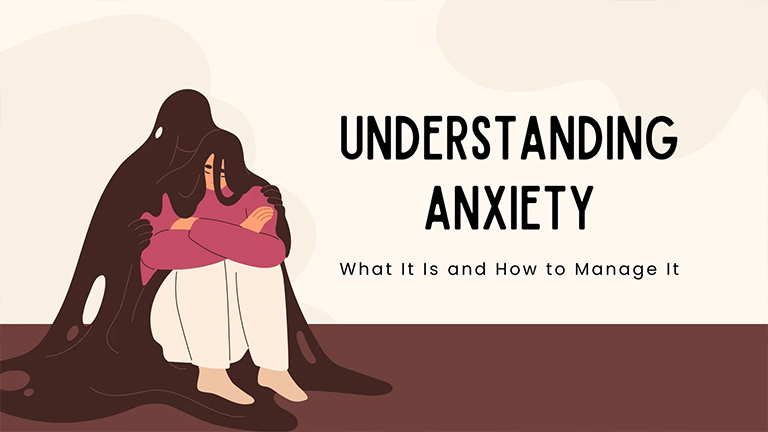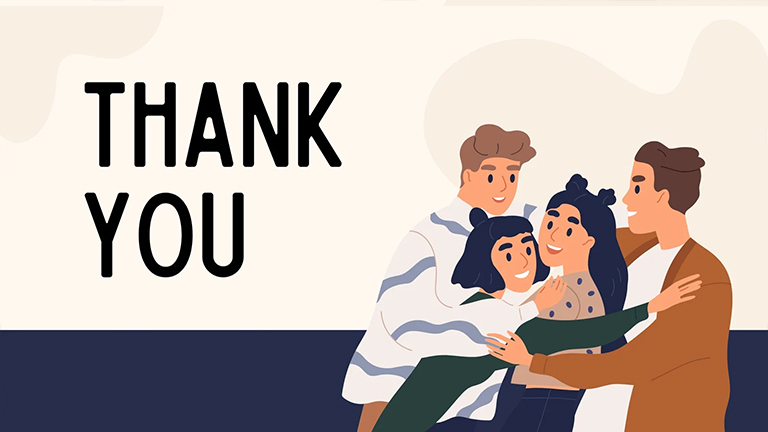Social Anxiety Disorder, Social anxiety—yeah, that’s the fancy term for feeling seriously freaked out in social situations. Loads of people deal with it (like, way more than you’d think). We’re talking sweaty palms, heart pounding, brain going blank just because you have to talk to someone or, god forbid, speak up in a group. It’s not just shyness—it’s that gnawing fear of looking dumb or being judged. Anyway, here’s the lowdown: what it feels like, why it happens, what you can actually do about it, plus a bunch of solid advice from folks who’ve been through it. Let’s get into it and figure out how to kick social anxiety to the curb.
What is Social Anxiety Disorder?
Social anxiety isn’t just being a little shy—it’s like your brain decides to throw a panic party every time you talk to someone, even if it’s just ordering coffee. It’s relentless. You end up obsessing over whether everyone’s judging you for, I dunno, blinking too much or tripping over a word. The fear gets so loud it can totally wreck your friendships, tank your grades, or make you dodge work stuff you actually care about. And the worst part? You can literally feel your face burning up or your hands shaking, and that just cranks the anxiety dial even higher. Fun times, right?
Social Anxiety Disorder vs Shyness
Lots of people get shy—big whoop, it happens. Maybe you feel awkward meeting new folks or freeze up at parties, but you usually warm up after a bit, right? Social Anxiety Disorder, though, that’s a whole different beast. We’re talking full-on dread. Folks with that aren’t just shy; they dodge social stuff like the plague because they’re terrified of looking stupid or screwing up. It’s not just nerves—they legit need some real help to get past it.
Symptoms of Social Anxiety Disorder
Alright, let’s get real about social anxiety for a minute.
Physical Symptoms
First off, the signs aren’t just in your head. They hit your body too. We’re talking sweaty palms, shaky hands, cheeks going full tomato mode, your heart thumping like you just sprinted a mile—yeah, classic nightmare fuel. Sometimes your mouth dries up and words just vanish. Or, bonus round: you might feel queasy, your head spins, or everything just tenses up like you’re bracing for a punch.
Emotional and Behavioral Symptoms
On the emotional side? It can get rough. Imagine walking into a room and your brain’s already screaming “run for your life.” Shame, fear, full-on panic—yep, all of that, just from the thought of chatting with people or, god forbid, being the center of attention. So, you start dodging stuff: skipping parties, ghosting on invites, maybe even avoiding eating in front of others. Public speaking? Forget it. Dating? Ha. Eye contact? Not a chance. Honestly, if any of this sounds familiar, you’re not alone. Social anxiety has a way of crashing the party whether you want it there or not.
Causes and Risk Factors Social Anxiety Disorder
Why do some people get hit with social anxiety while others just cruise through life like it’s nothing? It’s not just one thing, y’know? Usually, it’s like a weird cocktail of your genes, your environment, and whatever baggage you pick up along the way.
First off, blame your family if you want. If your parents or siblings are anxious types, you’ve probably got a higher shot at joining the club. Some brain chemistry stuff is involved too—serotonin, for example. If your brain isn’t handling that the way it should, guess what? Hello, anxiety.
Genetic and Biological Factors
But it’s not all about biology. Maybe you got picked on as a kid, or maybe your parents hovered over you like helicopters on Red Bull. That stuff sticks with you. Traumatic moments at school or with friends? Those can really mess with your head. Even the culture you grow up in matters. Some places crank up the pressure to fit in or be perfect, making social anxiety way more common. So yeah, it’s a messy mix. Nobody wakes up and decides to be anxious at parties. It’s just a bunch of stuff piling up over time.
Diagnosis and When to Seek Help
Look, if social anxiety’s making your life a total mess, don’t just tough it out—seriously, go talk to a mental health pro. They know what’s up. Usually, they’ll figure out what’s going on by chatting with you, maybe tossing a few questionnaires your way (yeah, like that SPIN thing—sounds fancy, but it’s just a tool to help them get the picture). No shame in getting help, honestly.
When to Seek Professional Help
Look, if you’re dodging parties like they’re landmines, freaking out just talking to people, or you’ve been stuck in this anxious rut for half a year or more, it’s seriously time to get some help. Don’t wait around hoping it’ll magically fix itself. The sooner you get checked out, the better—trust me, it’s way easier to deal with early on, and you’ll dodge extra baggage like depression or getting tangled up with stuff like booze to cope. Just get on it, alright?
Effective Treatments for Social Anxiety Disorder
Hey, the good news? Social anxiety doesn’t have to run your life. Seriously, people bounce back from this all the time. Therapy helps a ton—sometimes meds too, if you need ’em. Toss in a few tweaks to your routine, and you’re looking at a pretty solid game plan.
Cognitive Behavioral Therapy (CBT)
CBT—Cognitive Behavioral Therapy, if you wanna get technical—is basically the gold standard for kicking social anxiety’s butt. The whole deal is, you catch yourself spiraling with those “everyone’s judging me” thoughts, and then, with a bit of practice, you start swapping them out for stuff that’s actually true. Not just wishful thinking. Exposure therapy’s a big part of it too. That’s when you slowly throw yourself into those freaky social situations, one baby step at a time, till your brain stops flipping out every time you say hi to someone new.
Medication Options
Now, meds. SSRIs like sertraline or paroxetine—those are the usual suspects doctors hand out. Sometimes they’ll toss in beta-blockers or anti-anxiety pills, especially if your body’s doing the whole sweaty-palms, heart-racing thing before a presentation or whatever. But, for real, don’t just Google and self-prescribe. That’s how you end up with stories.
Group Therapy and Support Groups
And don’t sleep on group therapy or support groups. Turns out, a load of people are dealing with the same junk. Sitting in a circle, swapping horror stories? Weirdly comforting. You find out you’re not the only one who gets nervous ordering coffee. Plus, places like the National Institute of Mental Health or the Anxiety & Depression Association of America? They’ve got a ton of resources—and not just boring pamphlets either. Actual communities, forums, places to vent. So yeah, you’ve got options. No need to tough it out alone.
Natural Remedies and Self-Help Techniques
In addition to therapy, self-care strategies play a key role in managing social anxiety.
Mindfulness and Meditation
Look, mindfulness is basically the art of not losing your mind over every little thing. Meditation’s like, “Hey, come back to the moment, dude.” It’s wild how just sitting there, breathing, and not judging your thoughts can slap negative self-talk right in the face. Stick with it, and boom, suddenly you’re not spiraling over every awkward text you’ve ever sent.
Breathing Exercises and Relaxation
Deep breaths aren’t just for yoga moms and stressed-out teachers. Seriously, learning to breathe from your gut or tensing up random muscles then letting go? It actually helps. Your body’s like, “Oh, we’re not being chased by a bear? Cool, let’s relax.” The more you practice, the less your body freaks out over dumb stuff.
Diet and Lifestyle Changes
Eat stuff that isn’t just chips and energy drinks. Omega-3s, magnesium, B vitamins—all that brain food makes a difference. Also, move your body. Run, dance, walk your dog, whatever. Endorphins are like nature’s anti-anxiety meds, minus the weird side effects.
Limiting Caffeine and Alcohol
Caffeine and alcohol? Kinda the frenemies of anxiety. Too much coffee and you’ll vibrate right out of your chair. Alcohol tricks you into thinking you’re chill, then pays you back with more anxiety later. Cut back and you’ll notice your mood isn’t all over the place. Your future self will thank you, trust me.
Expert Opinions
Dr. Amanda Lewis, Ph.D., Clinical Psychologist
Social anxiety? Totally manageable—especially if you catch it before it spirals. CBT is still the MVP here, but honestly, tossing in some mindfulness and a little self-kindness? That’s like rocket fuel for progress.
Dr. Rajiv Patel, Psychiatrist (UK)
You want results? You gotta mix it up: therapy, meds if you need ‘em, and throwing yourself into social stuff, even if it feels awkward at first. The real trick is sticking with it—keep tweaking your habits and slowly push yourself out there. That’s how you actually get your groove back.
Dr. Emily Carter, Neuroscientist (USA)
Brains are wild, right? New studies keep showing that your brain can literally rewire itself if you keep at behavioral therapy and mindfulness. So yeah, that’s why people with stubborn social anxiety can actually start feeling like themselves again—science isn’t messing around.
Real-Life Recovery and Success Stories
You’d be surprised how many people have kicked social anxiety to the curb—yeah, it’s not easy, but it’s doable. Take Sarah, for example. For years, she’d duck out of anything that even smelled like public speaking. Total nope-zone for her. Then she started doing CBT, hit up some group therapy, and little by little, she edged out of her comfort zone—first tiny workshops, then bigger stuff. Fast-forward, now she’s the one giving pep talks, helping other folks face down their own freak-outs. So, yeah, it’s pretty clear: with the right support and a good dose of self-kindness, you can actually claw your way out. It’s not some pipe dream.
Preventive Strategies and Daily Management
Building Social Confidence
Alright, let’s be real—jumping headfirst into social stuff is terrifying. So, don’t. Start tiny. Chat up your best friend or that colleague who always microwaves fish (okay, maybe not them). The more you dip your toes in, the less your brain freaks out. Baby steps, my friend.
Positive Self-Talk
Honestly, your inner voice can be such a jerk sometimes. Swap out the “everyone’s staring at me” record for something saner, like “Dude, people are way too busy worrying about their own stuff.” It’s wild how much that quiets the anxiety gremlins.
Establishing a Routine
Look, I know, routines are boring. But they work. Sleep at decent hours, move your body sometimes, and maybe eat a vegetable or two. That’s the stuff that keeps your brain from going off the rails. The more predictable your days, the fewer surprise attacks from anxiety.
Seeking Continuous Support
You don’t have to do this solo. Seriously, therapists exist for a reason. Plus, there are online groups full of people who totally get it. Connecting with others gives you backup—and who doesn’t love a good pep talk when things get rough?
Conclusion Social Anxiety Disorder
Man, social anxiety can feel like this massive, unbeatable monster, but honestly? It’s actually super treatable. Tons of folks get past it, especially if they catch it early and actually do the work—therapy, self-help stuff, all that jazz. CBT is the gold standard (yeah, I know, you’ve probably heard that a million times), but throwing in some mindfulness, a chill community, and, I dunno, going for a walk once in a while instead of doomscrolling? That stuff makes a difference. Doesn’t matter if you’re in Toronto, London, the Midwest, or stuck in the middle of nowhere—help is out there. Seriously, just take a step. The first one’s the toughest, but it’s worth it.
For more detailed resources, visit National Institute of Mental Health, Mayo Clinic, and Mental Health Foundation UK.
© 2025 Prescription Chamber | All Rights Reserved.


